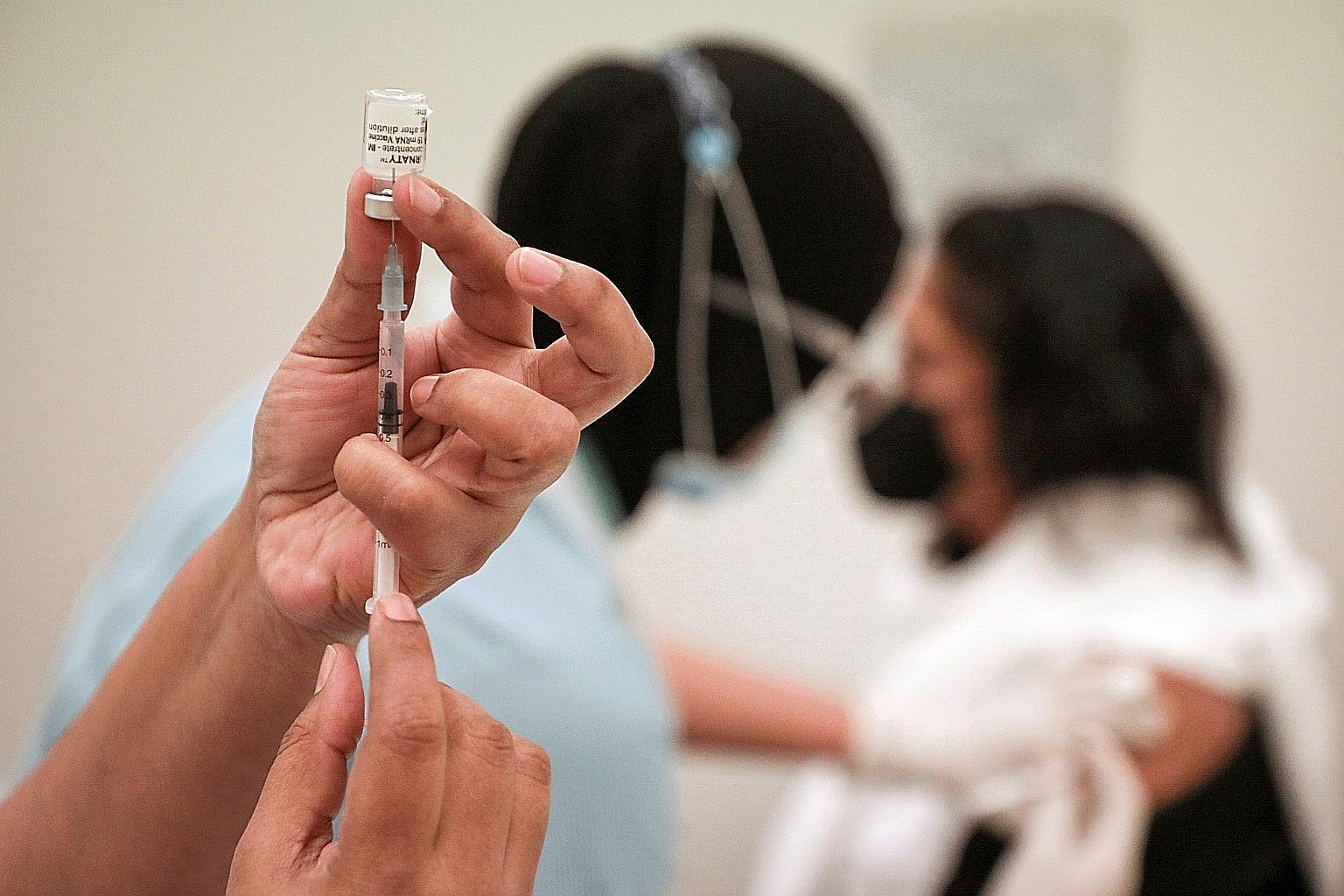Coronavirus: Global situation
Private hospitals in Malaysia can procure own vaccines
But govt warns such supplies might not arrive till second half of year, and won't be free
Sign up now: Get insights on the biggest stories in Malaysia

Malaysia has procured enough vaccines for the country's entire population and aims to inoculate 80 per cent of its people by the end of the year at the earliest. The government's vaccination drive is free.
PHOTO: REUTERS
Malaysia will allow its private healthcare providers to open negotiations to procure their own Covid-19 vaccine supplies, the government said yesterday.
But the country's coordinating minister for its immunisation programme, Mr Khairy Jamaluddin, tempered expectations by warning that a private sector vaccine roll-out - which would allow people to pay for their own Covid-19 shots - might take place only in the second half of this year.
Mr Khairy said he would hold discussions with private hospitals about allowing them to procure vaccines, following a request by the Association of Private Hospitals of Malaysia to run a parallel vaccination drive along with the government's free inoculation programme to help the country achieve herd immunity against the coronavirus.
"But I want to manage expectations. The private sector vaccines might only arrive in the third or fourth quarter of the year because there is a shortage of vaccine supply globally," he said during his weekly briefing on the national immunisation programme.
Mr Khairy also said that being willing to pay for the vaccines via private hospitals would not guarantee individuals early inoculation.
The government has procured enough vaccines for the country's entire population and aims to inoculate 80 per cent of its people by the end of the year at the earliest.
The vaccines are Germany's Pfizer-BioNTech, China's Sinovac, Britain's AstraZeneca, and Russia's Sputnik V. The first three have received approval from Malaysian pharmaceutical regulators, with the first two being used in the national vaccination programme.
Mr Khairy also said that Malaysia will bring forward the third phase of its vaccination programme - meant for the general population - by a month. This is due to low registration rates by senior citizens who are eligible to get inoculated, starting next month.
Only two million out of 9.4 million senior citizens in Malaysia have registered for vaccination under the second phase, which will begin on April 19.
Hence, Mr Khairy said that general population vaccination, which was scheduled to begin in May, will be brought forward while the government tries to reach out to more high-risk groups to get vaccinated.
In an encouraging sign, Malaysia yesterday reported 941 new cases of Covid-19, the first time in more than three months that daily cases have fallen below 1,000. A total of 342,885 confirmed cases and 1,260 deaths have been reported since the start of the pandemic.
The country has so far inoculated over 580,000 front-liners with at least one dose in just over a month since beginning its vaccination programme. It aims to finish vaccinating 647,398 front-liners in total within the next two weeks before beginning phase two.
Mr Khairy also said that private general practitioners would be able to administer the free Covid-19 vaccines to patients who prefer to receive their jabs at their nearest private clinic instead of government vaccination centres, starting from April 19.
However, he said the contribution of private GPs to the vaccination drive will "not be considerable", as they might be able to administer only dozens of doses per day, and there is also the logistical consideration of getting certain shots - such as that from Pfizer-BioNTech - from vaccine storage locations to private clinics.
"We will ask the registered GPs to provide an indicative list of patients who want to be vaccinated at their clinics," Mr Khairy said.
More than 7.2 million people - or about 21 per cent of the population - have registered for vaccination.


